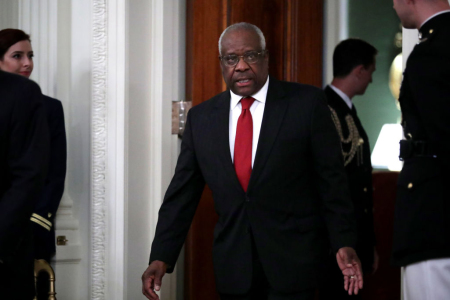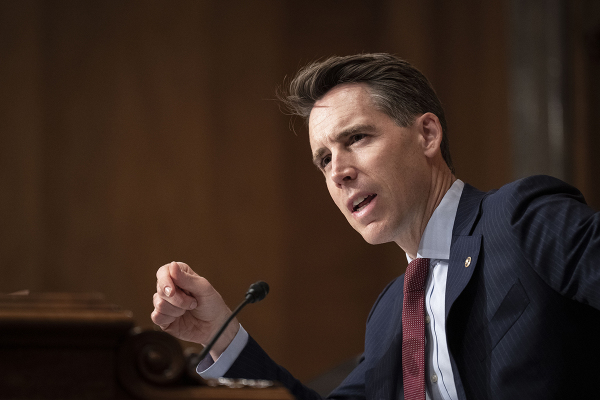3 black, Hispanic judicial nominees Biden voted against confirming

1. Supreme Court Justice Clarence Thomas
President George H.W. Bush nominated Clarence Thomas to fill a vacancy following the retirement of Supreme Court Justice Thurgood Marshall in 1991. Like the man he was chosen to replace, Thomas was an African American.
However, the two had differing legal philosophies. Thomas sympathized with the originalist view of the U.S. Constitution, which holds that judges should interpret the Constitution as written, while Marshall ascribed to the “living Constitution” view that the interpretation of the nation’s founding document can and must evolve with a changing society.
Thomas’ confirmation hearings quickly became contentious as one of his former colleagues at the Equal Employment Opportunity Commission, Anita Hill, accused him of sexual harassment after his initial hearings had already concluded. Both Hill and Thomas had the opportunity to tell their sides of the story, and Thomas accused Senate Democrats, who were in control of the Senate at the time, of orchestrating a “high-tech lynching” against him.
“This is a circus. It’s a national disgrace,” he said in testimony before the committee. “And from my standpoint as a black American, as far as I’m concerned, it’s a high-tech lynching for uppity blacks who in any way dare to think for themselves, to do for themselves, to have different ideas, and it is a message that unless you kowtow to an old order, this is what will happen to you. You will be lynched, destroyed, caricatured by a committee of the U.S. Senate rather than hung from a tree.”
The Senate Judiciary Committee, led by Biden, failed to send Thomas’ nomination to the floor of the Senate with a favorable recommendation, a traditional custom associated with the Supreme Court appointment process. Seven of the committee’s 14 members, including Biden, voted against advancing Thomas’ nomination while the other seven, including one Democrat, voted to advance Thomas’ nomination to the full Senate.
However, Biden joined all but one of his colleagues on the Senate Judiciary Committee in voting in favor of a motion to send Thomas’ nomination to the full Senate without a favorable recommendation.
The Senate ultimately voted to confirm Thomas, who became the second African American Supreme Court Justice and the first appointed by a Republican president. While 11 Democrats joined all but two Republicans in supporting Thomas’ confirmation, Biden was not one of them.
As Biden ran for president in 2019, his treatment of Thomas received renewed attention. Thomas weighed in on the efforts to sink his nomination in the documentary “Created Equal: Clarence Thomas in His Own Words,” which chronicles Thomas’ life and confirmation to the Supreme Court.
Reacting to Biden’s desire to find out what Thomas meant when he said that he would “apply the natural law philosophy to the Constitution,” the justice insisted that “I had no idea what he was talking about.” Biden implied that Thomas’ philosophy was based on a “fervent and aggressive school of thought that wishes to see natural law further inform the Constitution than it does now.”
According to Thomas: “I understood what he was trying to do. I didn’t really appreciate it. Natural law was nothing more than a way of tricking me into talking about abortion since many Catholic moral philosophers saw the two things as intimately related. But my interest in natural law was different.”
Ryan Foley is a reporter for The Christian Post. He can be reached at: ryan.foley@christianpost.com





















